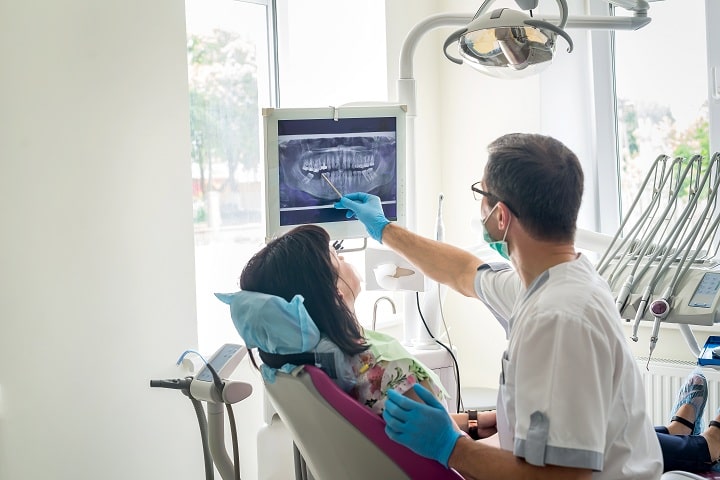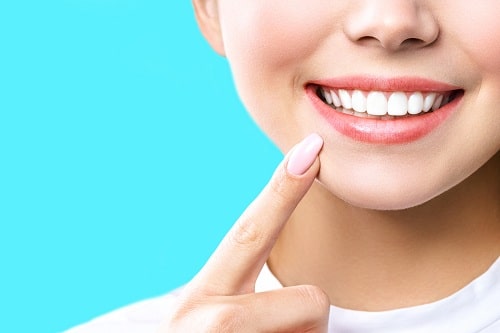The best outfit you can wear is your smile. Not only does good teeth make you look impressive when you speak or open your mouth, it reflects hygiene.
What is Dental Health?
Dental health is the overall well-being of your teeth, gums, and mouth. The upkeep of your teeth goes beyond fixing their alignment or brushing regularly. It includes preventing complications that arise from poor oral health. Pay attention to your oral condition so you could spot budding infections or diseases that may result in teeth loss and gum inflammation, and recession.
Factors That Can Influence Dental Health
Poor oral hygiene, illness, or accidents are the primary causes of teeth damage. Your age and habits also play a role.
Consistent oral care is needed to address any dental issues you may have and identify any potential problems before they occur. You will immediately detect common dental woes such as cavity build-up or teeth sensitivity and deal with them accordingly.
Nowadays, various procedures that restore the teeth’s natural appearance are available, such as restorative and cosmetic dentistry and orthodontics, such as implanting veneers, crowns, and dental implants to dentures.
Dental Solutions
People who have crooked or misaligned teeth will need braces or retainers to fix their upper or lower jaw alignment while young.
Meanwhile, some of those without dental problems in their youth may experience teeth and gums issues as they age, such as natural loss of bone mass, receding gums due to infectious diseases, or natural erosion of soft tissues around the mouth.
Teeth will also wear down and get shorter while nerve sensitivity will diminish, keeping you from being alerted of oral problems at an early stage.
Thankfully, some treatments help fix all kinds of damages and bring back your teeth’s original appearance. It can range from minor retouches to complete replacements. Here are dental solutions:
- Implants- These are prosthetic teeth that replace the roots of a lost tooth and support neighboring teeth. It is the best solution for those with one or two damaged or missing teeth. It requires little to no changes in the overall oral routine since aftercare for implants is generally the same for teeth.
- Complete Dentures- This is a full-coverage replacement for either the entire upper or lower set of teeth. Those who no longer have any healthy teeth on either mandible opt for complete dentures. A complete denture is sculpted based on the gum’s natural arch and remaining tissue to enable proper attachment when worn.
- Partial Dentures- It is for replacing a few teeth.
- Veneers- These are thin custom-made porcelain shells attached in front of an existing tooth to cover discoloration, chipped or worn-down teeth, as well as fill in any small gaps between the teeth.
- Crowns- Made of porcelain, crowns cover the entire surface of teeth, usually after a root canal operation. Crowns are natural-looking teeth replacements that will eventually bond with the surface of the natural tooth over time.
Common Dental Problems
There are common dental problems that may result in partial or complete damage to the teeth and gums. These problems can develop anytime, especially without proper oral hygiene.
-
Cavities
These are teeth holes caused by plaque formation that leads to an erosion of the outer coating and the surrounding connective tissues. Cavities occur when food, acid, or bacteria forms a coat around your teeth, leading to plaque formation. When left untreated, the plaque will erode the teeth.
-
Gum Disease
Plaque build-up can lead to the bleeding and swelling of gums. If disregarded, the condition could worsen to periodontitis, which causes gum inflammation that may lead to teeth loss.
-
Broken Teeth
Putting too much pressure on the teeth, such as teeth grinding or biting dense objects can break or crack the teeth.
-
Teeth Sensitivity
Caused by broken or chipped teeth or thin enamels, teeth sensitivity is characterized by discomfort or pain when in contact with cold or heat.
Remedies for Dental Problems
Several treatments can help address existing dental problems or prevent possible ones from emerging in the future.
-
Cleaning
A regular visit to the dentist for oral cleaning will help eliminate plaque and tartar in hard-to-reach places.
-
Root Canal
This treatment is necessary when tooth decay has reached the nerves of the tooth. The nerve and pulp inside the affected area are removed and cleaned to prevent the spread of decay. If decay is left unattended, the tooth and gums can become infected and severely damaged.
-
Antibiotic Treatment
Antibiotics are supplementary treatment after a root canal procedure or gum infections to avoid infections.
How To Maintain Good Oral Hygiene?
Proper oral hygiene is essential to the upkeep of your teeth and gums. It starts with regularly the teeth.
-
Floss After Brushing
Flossing removes food particles stuck in between your teeth that remain after brushing. Food build-up on your teeth can lead to cavities, which is why thorough cleaning is necessary.
-
Avoid Smoking
Smoking can trigger bacterial formation in your mouth, which can result in damaged teeth and inflamed gums. Furthermore, the nicotine and tar in tobacco can cause teeth discoloration and gum deterioration.
-
Practice Healthy Eating Habits
Consumption of healthy foods is beneficial for overall health, including oral health. Vitamin-rich foods help prevent infections from forming while keeping your teeth and gums strong. Healthy eating habits include vigilance on the intake of sugar to limit plaque formation around the teeth.
-
Regular Dental Visits
Visiting a dentist for professional cleaning and check-up at least twice a year to get oral health advice is necessary. The visits enable you to address any dental issues that may be bothering you before it gets worse.
Conclusion
Your dental condition can significantly affect your overall health and quality of life. It plays a vital role in your everyday routine, such as eating, speaking, and how you perceive yourself.
The practice of proper oral hygiene will decrease the risk of dental complications and help preserve your teeth.



















